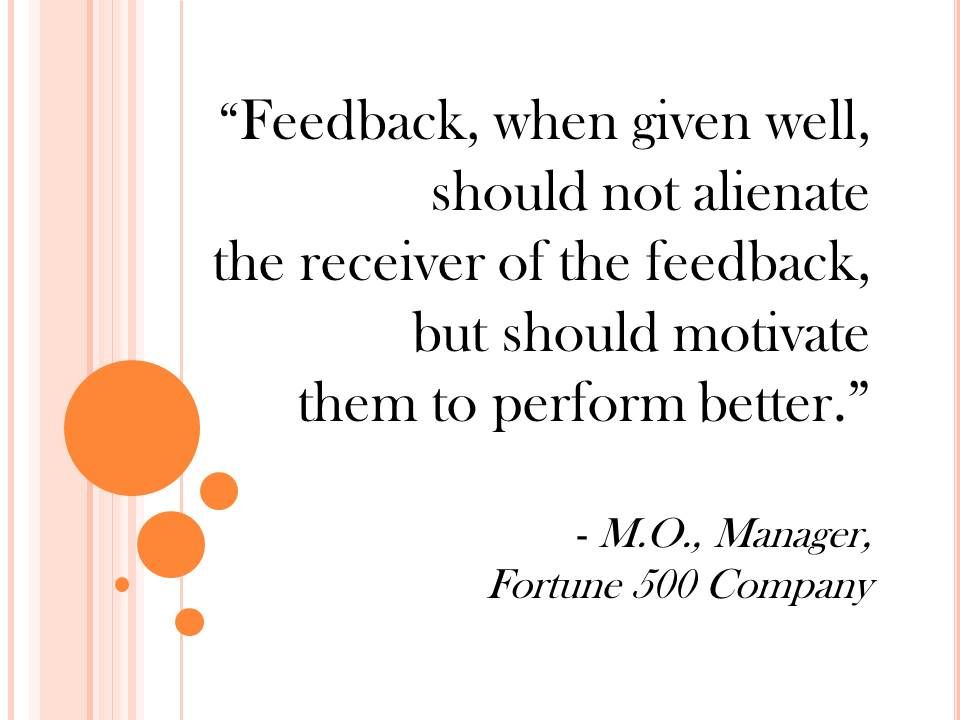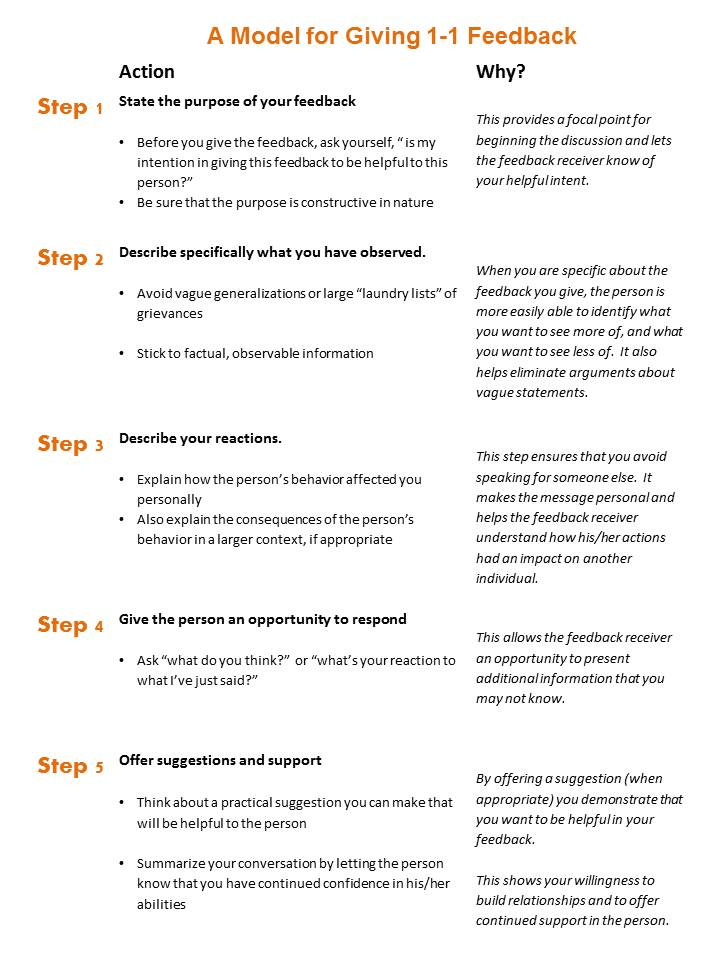Imagine that as a leader, you must give a team member some vital feedback. What do you suppose their gut reaction will be when you say, “I have some feedback for you”?
Is it [said with genuine enthusiasm] “Oh, fantastic! I was hoping to get some feedback on my performance today!!!”
Um, maybe not so much?
A more typical reaction is probably a tentative “OK . . .” and an uncomfortable pause as the team member steels him or herself for the other shoe to drop. Our brains are wired to feel stress if we feel threatened and oftentimes, feedback can feel threatening.
People tend to associate the word “feedback” with negative information. And that’s a shame because feedback is vital to any healthy working relationship; it helps us recalibrate our behaviors to more closely match others’ expectations.
What if we could help our team members think about feedback differently – trying to move it from “Uh-oh, what’d I do wrong?” to a more curious stance.
To achieve this curiosity, you need to take the judgment out. Many times, people categorize feedback into one of two buckets – “positive” and “negative”. This sets up feedback in a sort of good cop/bad cop dynamic – we welcome one type, while resisting the other.
It really makes sense when you think about it – we love to hear about what we did right, but it’s not fun to hear about our shortcomings. Yet, if nobody lets us know that we aren’t cutting it, how can we improve?
I suggest framing feedback in a different way – what about “constructive” feedback? Here’s how I define it:
Constructive feedback is information that helps people decide whether their actions have had the intended impact.
The word “constructive” encompasses both “positive” and “negative” (or what I call “developmental”) feedback. When framed as simply “information”, feedback takes on a more neutral tone. If the feedback deliverer is skilled, the outcome of providing feedback can be constructive, even if the news to be delivered is “you didn’t hit the mark”.
As one of my colleagues, a leader in a manufacturing setting, recently remarked, “Feedback, when given well, should not alienate the receiver of the feedback, but should motivate him/her to perform better.”
Indeed, that is the true mark of a skilled feedback-giver.
Here’s a step-by-step process you can use to help deliver feedback in a way that increases the likelihood of the receiver “hearing” you in a constructive way.
Discussion Questions:
- How do you view feedback?
- What are the best phrases you use to help motivate people with your feedback rather than depress or demotivate them?


I liked the article. I am interested in being able to constructively give feedback to an exceptionally sensitive person, this person begins to weep or to get angry whenever feedback is given. I find this a very large challenge personally.
I would like to be much more effective with this personality type as this personality, in my opinion seems to be more prevalent today.